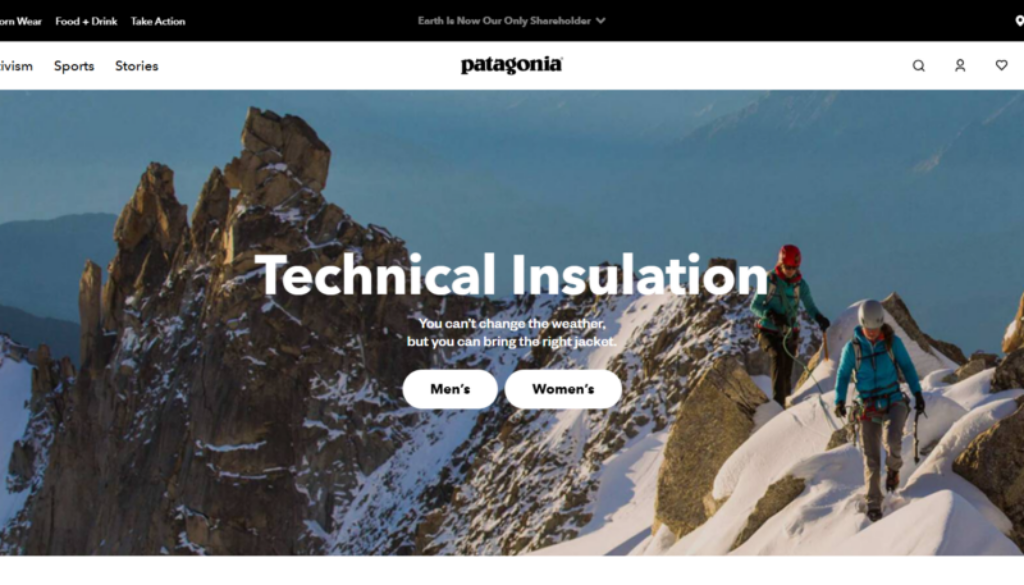In a world dominated by fast fashion and fleeting trends, Patagonia isn’t just a brand—it’s a movement. Celebrated for its durable outdoor gear and unwavering commitment to environmental sustainability, Patagonia has redefined what it means to be purpose-driven. Its journey proves that businesses can succeed while prioritizing values over profit, a concept many companies are now striving to adopt.
From Modest Beginnings to Global Recognition
Patagonia’s story begins in 1973 with Yvon Chouinard, an avid climber and environmentalist who had a deep respect for nature. His early creations were climbing tools designed to protect rock faces from harm, reflecting his belief that outdoor adventures should leave no trace. Over time, the company expanded into outdoor apparel, yet it remained steadfast in its mission to safeguard the planet.
Unlike brands that rely on flashy marketing, Patagonia quietly earned a devoted following by prioritizing quality, durability, and environmental responsibility. Its iconic fleece jackets and hiking gear became must-haves for outdoor enthusiasts who value both performance and purpose.
A Brand That Puts the Planet First
Sustainability isn’t a buzzword at Patagonia—it’s the core of the company’s operations. From using recycled and organic materials to championing fair labour practices and supply chain transparency, Patagonia has set a gold standard. Remarkably, the company even encourages customers to repair gear rather than replace it, a counterintuitive but principled approach for a retailer.
In 2011, Patagonia made waves with its bold “Don’t Buy This Jacket” ad on Black Friday. Urging consumers to buy only what they truly needed, the campaign challenged overconsumption. While it seemed risky, the message resonated with environmentally conscious shoppers and solidified Patagonia’s reputation as an industry leader.

Activism at the Heart of Business
Patagonia’s activism isn’t a side project—it’s embedded in its DNA. Through its self-imposed “Earth Tax,” the company donates 1% of annual sales to environmental causes, contributing over $140 million to grassroots organizations.
In 2020, the company sparked a conversation with its “Vote the A**holes Out” labels, targeting politicians who disregard climate science. Such bold advocacy has drawn admiration from supporters, even at the risk of alienating some customers.
In 2022, Patagonia took its mission to new heights when Chouinard and his family transferred ownership of the company to a trust and nonprofit dedicated to fighting climate change. This groundbreaking decision ensures all profits—about $100 million annually—will go toward environmental initiatives, exemplifying Patagonia’s authenticity and commitment.
The Patagonia Effect: Inspiring Purpose-Driven Brands
Patagonia’s success has fueled a broader conversation about the role of businesses in addressing global challenges. As consumers demand accountability, companies are rethinking their values. From Nike’s social justice campaigns to smaller brands adopting sustainability, Patagonia’s influence is undeniable.
However, purpose-driven marketing carries risks, particularly the danger of “greenwashing,” where companies claim sustainability without meaningful action. Patagonia has avoided this pitfall by consistently aligning its practices with its values, setting a high standard for authenticity.
A Blueprint for the Future
Patagonia’s journey is a powerful blueprint for business, proving that profitability and purpose can go hand in hand. By building trust, embracing values, and committing to genuine action, the company demonstrates how businesses can thrive while making a positive impact.
Ultimately, Patagonia’s story is about more than jackets or gear—it’s about inspiring a movement. In a world grappling with climate challenges, its message is clear: businesses have the power—and responsibility—to lead the way toward a sustainable future.
~By Parbati Bandyopadhyay, IMS, Lalkuan, Ghaziabad

